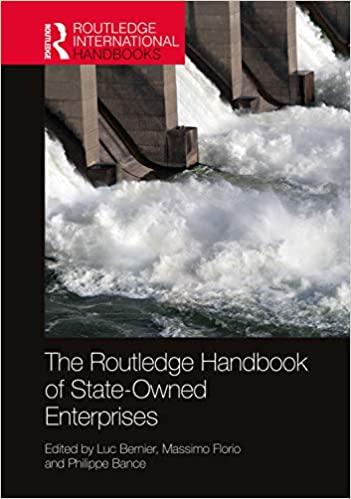Question
Question 3 Climate Crackdown for Australian Corporates CORPORATE Australia faces a crackdown on disclosing climate risks after major investor groups held briefings with Treasury and
Question 3
Climate Crackdown for Australian Corporates
CORPORATE Australia faces a crackdown on disclosing climate risks after major investor groups held briefings with Treasury and the nation's financial watchdogs to introduce a mandatory reporting system by 2024. The Investor Group on Climate Change (IGCC) -who represents institutional investors in Australia and New Zealand with $2 trillion in assets - wants to make permanent a scheme aimed at giving shareholders more information about the risks presented by climate change, known as the Taskforce for Climate Related Financial Disclosure (TCFD).
The regime would initially be created under a voluntary 'if not, why not' approach before moving to a strict mandatory system by 2024 to protect national economic stability and help investors properly price assets as financial markets grapple with how to address climate risk.
Talks have been held between the IGCC and its investment partners with Commonwealth Treasury, the Australian Prudential Regulatory Authority, Australian Securities and Investments Commission and the ASX Corporate Governance Council.
The plan would initially target Australia's top 300 listed companies and large unlisted businesses in the hope the powerful Council of Financial Regulators would provide oversight of the investor scheme. While 60 companies in the ASX200 have adopted the framework known as TCFD, there is concern from investors over a range of different approaches to disclosing risks which could lead to funding being withheld by financiers pushing for a stronger response to the issue.
There is currently a voluntary approach in Australia, although listed companies must comply with the continuous disclosure regime.
"Institutional investors have reported that the quality and consistency of these company disclosures is severely lacking, leading to the under-pricing of climate risks in the market," the IGCC said. "At the same time companies and financial organisations have been left to navigate the complex and technical elements of such reporting, creating significant business burden." New Zealand became the first country to introduce a law which requires the financial sector to disclose the impact of climate change on businesses and how they will manage climate-related risks and opportunities . Australia's bank regulator warned in April of the unprecedented, far-reaching impact of climate change on all parts of the financial system, putting lenders and insurers on notice they need to be on top of the risks to their businesses.
Extract from Williams, P. Climate Crackdown for Australian Corporates. Herald Sun. June 29 2021.
Question 3 The article states that the climate risk reporting framework will initially be created under a voluntary if not, why not approach. Explain what a voluntary 'if not, why not' approach is and the advantages of such an approach before imposing a mandatory system. ( 6 marks)
Step by Step Solution
There are 3 Steps involved in it
Step: 1

Get Instant Access to Expert-Tailored Solutions
See step-by-step solutions with expert insights and AI powered tools for academic success
Step: 2

Step: 3

Ace Your Homework with AI
Get the answers you need in no time with our AI-driven, step-by-step assistance
Get Started


